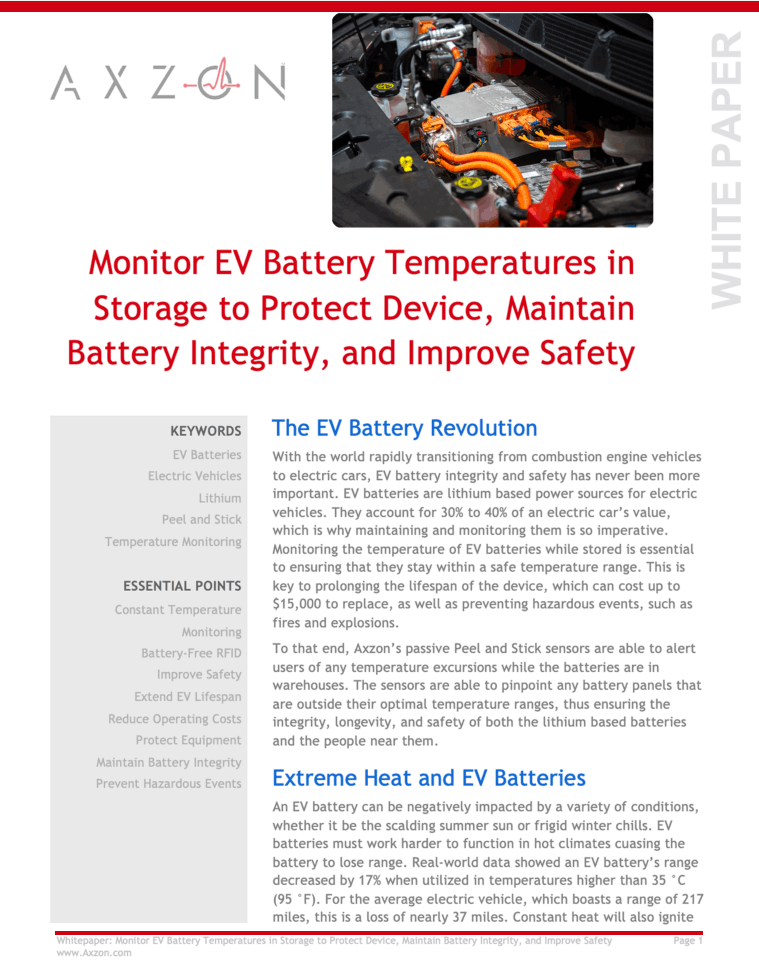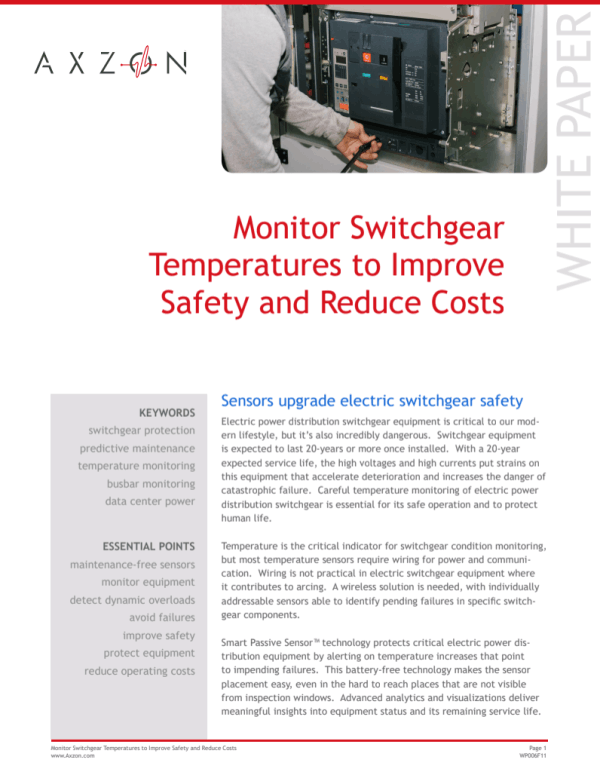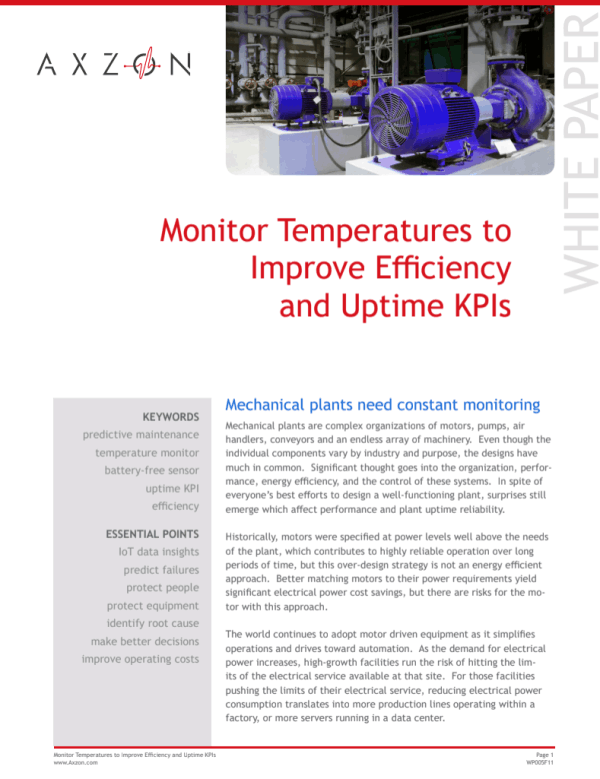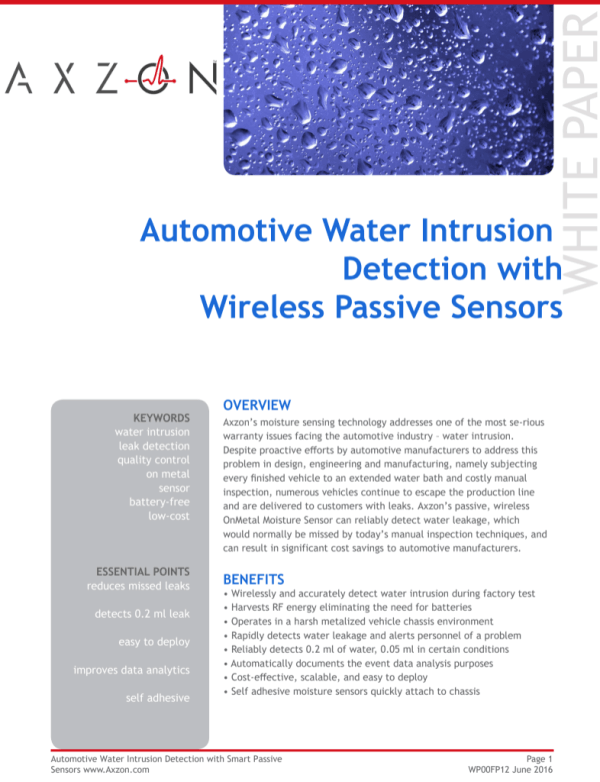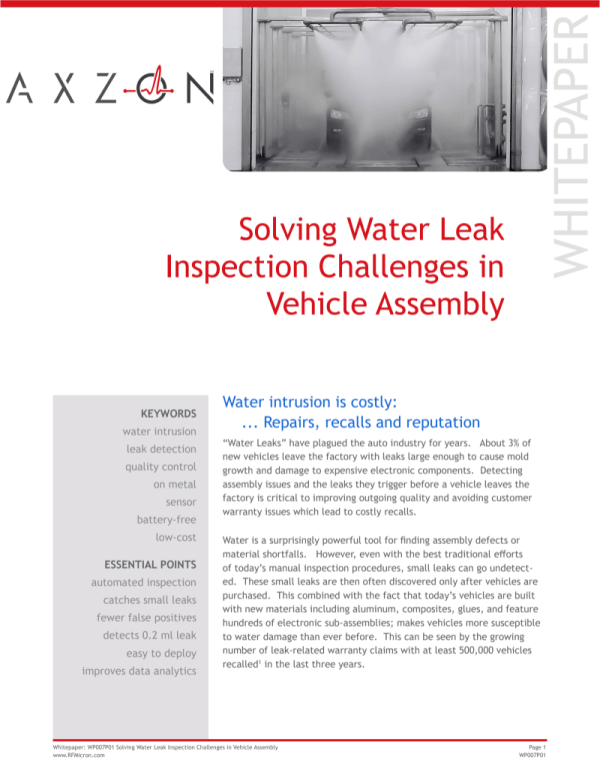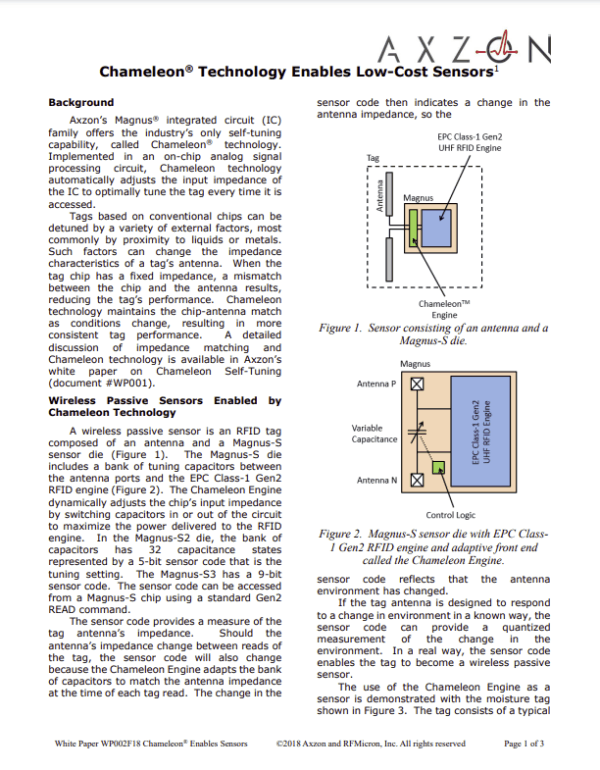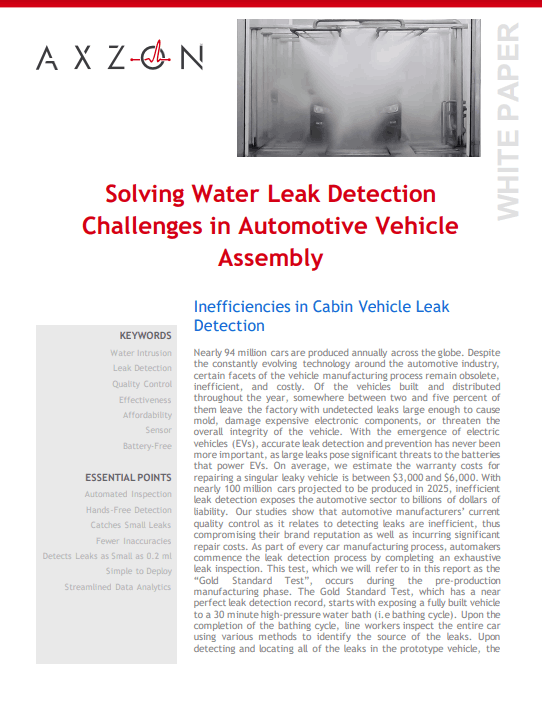
Solving Water Leak Detection Challenges in Automotive Vehicle Assembly
Nearly 94 million cars are produced annually across the globe. Despite the constantly evolving technology around the automotive industry, certain facets of the vehicle manufacturing process remain obsolete, inefficient, and costly. Of the vehicles built and distributed throughout the year, somewhere between two and five percent of them leave the factory with undetected leaks large enough to cause mold, damage expensive electronic components, or threaten the overall integrity of the vehicle.
